You wouldn’t think that adding another part-time orchestra job would prompt the question, “But who will take care of your husband?”…and yet, it did. The comment immediately challenged my value and worth, not just as a musician, but as a professional woman. It’s a question men almost never face, no matter how many roles they take on or how far they travel for their work.
The good news? My husband is more than capable. And more importantly, my choices are my own.
Speaking with fellow busy women in the arts was validating. None of us should have to justify our multifaceted lives, but hearing one another’s stories reminded us: our choices are rooted in passion, driven by a desire to increase accessibility in the arts, and guided by a need for personal balance.
Every role I take complements the others. Building audiences, nurturing creativity, and performing with intention are all interconnected. One strengthens the other. That synergy is not a burden, it’s a gift.
Listening to other women has empowered me to stop second guessing and apologizing for my choices. If someone can’t understand that, it’s their problem, not mine.
So, who’s going to take care of my husband?
I am. By prioritizing myself and my success.
Below are five dynamic and inspiring women whose stories have a similar vibe. I found great inspiration in their shares, and I hope you do to!
Barb Scowcroft Nurtures Gratitude
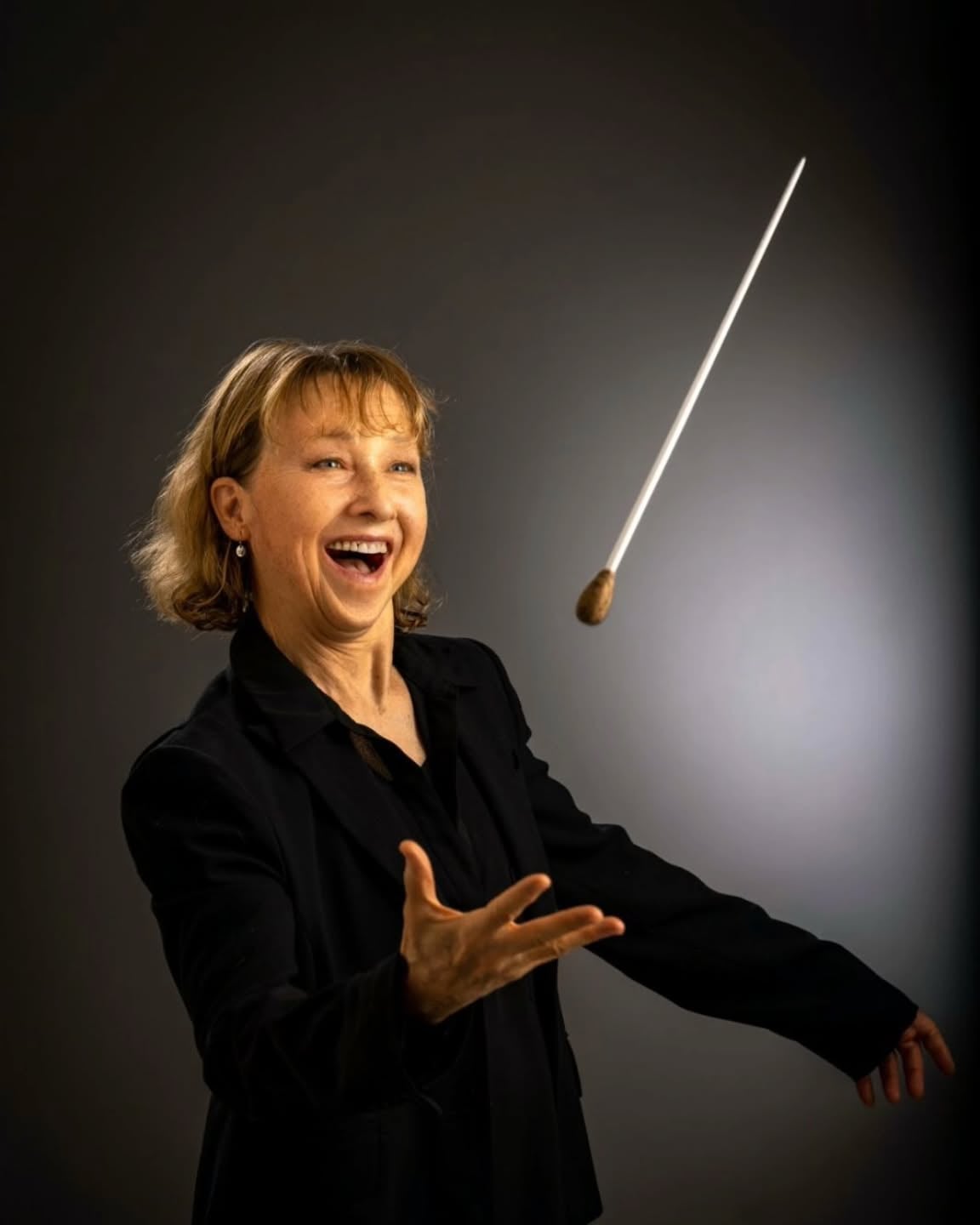
Barb Scowcroft isn’t just a violinist with the Utah Symphony; she’s a real force in the state’s music scene. As the Music Director and Conductor of the Utah Youth Symphony, leading both their Youth Philharmonic and the Utah Youth Symphony orchestras, she’s shaping the next generation of musicians. Her commitment stretches beyond the stage, too, as she serves on the board for the nonprofit, Arts Capacity and even represents her fellow musicians on the Utah Symphony’s board. Come summertime, you’ll find her at the Grand Teton Music Festival and running their String Programs for young players. And if that wasn’t enough, Barb’s a sought-after guest conductor and clinician for orchestras of all levels, plus she shares her expertise with university students at the University of Utah.
After four decades deeply involved in music, Barb still gets the question, “How do you manage to do it all?” She’s noticed how the perception of that question has changed over the years. Early on, it sometimes felt like people were questioning her choices as a woman in a traditionally male-dominated field. Now, while often well-meaning, it can still feel like a judgment on her busy life. But for Barb, it’s simple: her passion for music drives her, and she feels a real sense of purpose in contributing to the community.
For Barb, a fulfilling career isn’t about climbing a ladder; it’s about actively participating in the ongoing story of music within her community. It’s about honoring the musicians who came before and building a vibrant future for those who will follow. She notes: “It’s easy to do one thing for a year. The real accomplishment is immersing yourself in a profession for decades, consistently building its many sides and becoming truly proficient.”
When people hear about her many roles, Barb has learned that their reactions often say more about their own perspectives. She’s been labeled in ways that don’t quite fit, but she always comes back to a piece of wisdom from her dad: “If you want something done well, ask the busiest person you know.” Her dedication over so many years speaks for itself.
She recalls a time when a conductor was unexpectedly absent, and she seamlessly stepped in to lead a significant number of youth concerts with the Utah Symphony. For Barb, it wasn’t about proving anything; however, it did open eyes and minds to the fact that she was more than capable than people gave her credit for.
If she could rewrite the cultural narrative around “doing it all,” Barb would want it to highlight the deep commitment to giving back, the sheer organization it requires, the unwavering work ethic, and the genuine desire to champion classical music and the arts.
Her advice to young artists, especially women, is to dive in and pursue their passions wholeheartedly. But she also emphasizes the crucial need to prioritize self-care making time for rest, good food, and those quiet moments of reflection. And above all, she encourages nurturing gratitude and not letting negativity dim their creative spirit.
Alecia Lawyer’s Bowl of Possible
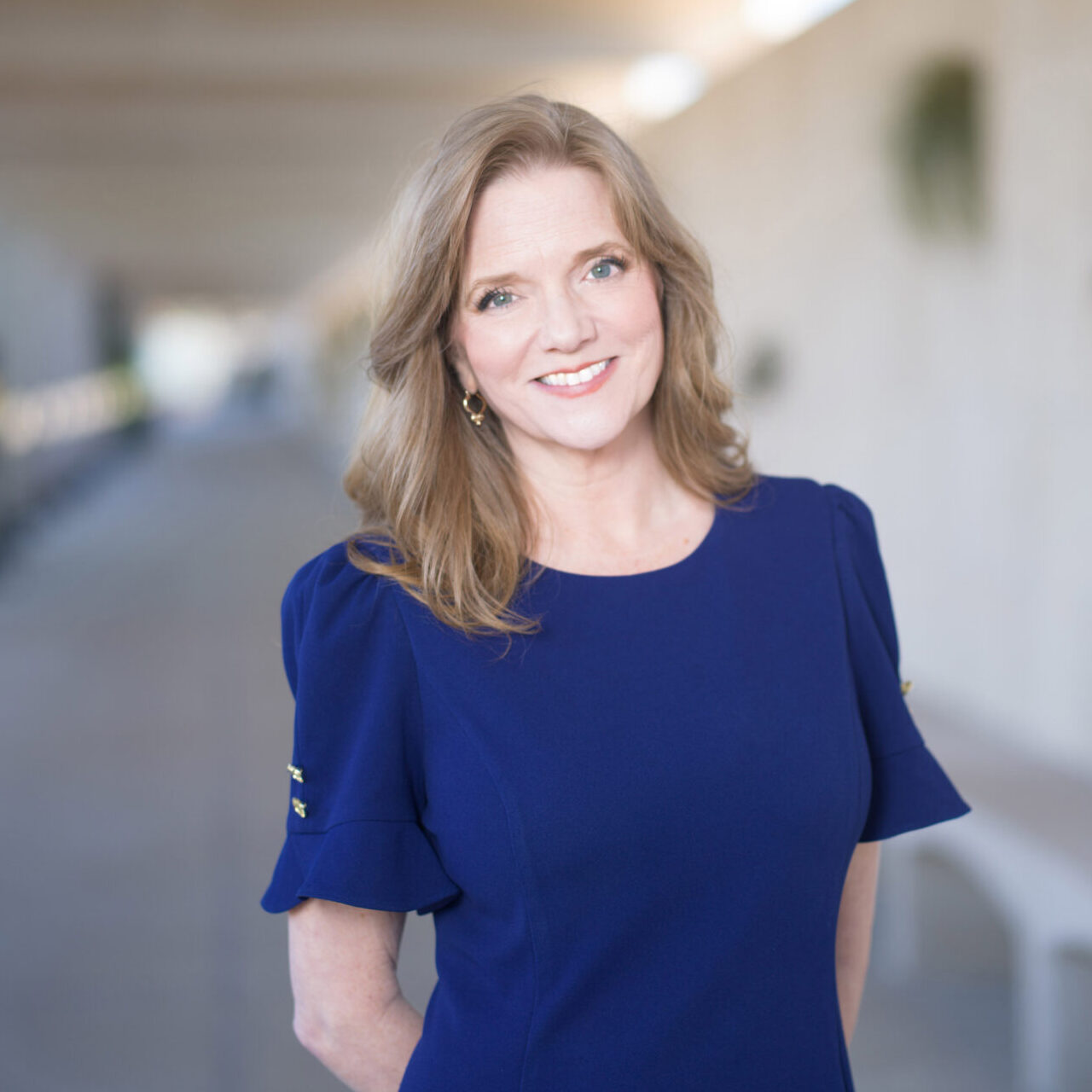
Alecia Lawyer is the dynamic force behind ROCO Chamber Orchestra, serving as its Founder, Artistic Director, and Principal Oboist, leading a team and musicians from around the globe. Her influence extends far beyond the orchestra, as she consults with arts nonprofits on strategy and development, keynotes on innovation and leadership, and lectures at conservatories on the business of music and career development. As a F.Lorée artist, she also enjoys a vibrant career as a soloist and chamber musician.
A dedicated advocate for the arts community, Alecia is a Founding Board member of the Houston Center for Musical Arts, involved in a significant renovation project. She also serves on the boards of the Houston Youth Symphony and the advisory boards of the Texas Music Festival and the St. Barth Music Festival. Her leadership is further recognized through her fellowship in the American Leadership Forum and her alumna status with the Aspen Executive Seminar.
Beyond her extensive professional endeavors, Alecia has been a wife for 35 years and a mother to two adult sons. She is deeply involved in her church and cherishes her close relationships with family.
While most questions she receives are met with her open and engaging spirit (unless they violate ROCO’s “no jerks allowed” policy!), two inquiries consistently tire her: “Are you a Lawyer?” (No, it’s her last name) and the plea, “I have never heard of ROCO.”
For Alecia, a fulfilling career is rooted in acting on her inner convictions and reliance on God, trusting that perceived failures are simply course corrections. She firmly believes in a dynamic approach to life, viewing it as “a series of shifts in prioritized focus and presence that sometimes needs to happen in rapid fire sequences,” rather than a static concept of balance.
Acknowledging that “you actually cannot do it all and should not do it all but you can try it all and see what you are good at and what you enjoy,” Alecia emphasizes the importance of surrounding oneself with a supportive network, “but more important to find people you trust to tell you No but also joyfully say Yes.” The most important thing to do is to release people into their own creativity and growth.
We have a saying in ROCO that “not everyone can be a bowl of possible.” It has taken me a long time to absorb this and I still struggle with it. I wish my younger self had let go of some people who were just not a bowl of possible earlier so that their toxicity, or even more damaging, their apathy, was not holding me back.
DeAnn Letourneau’s Story
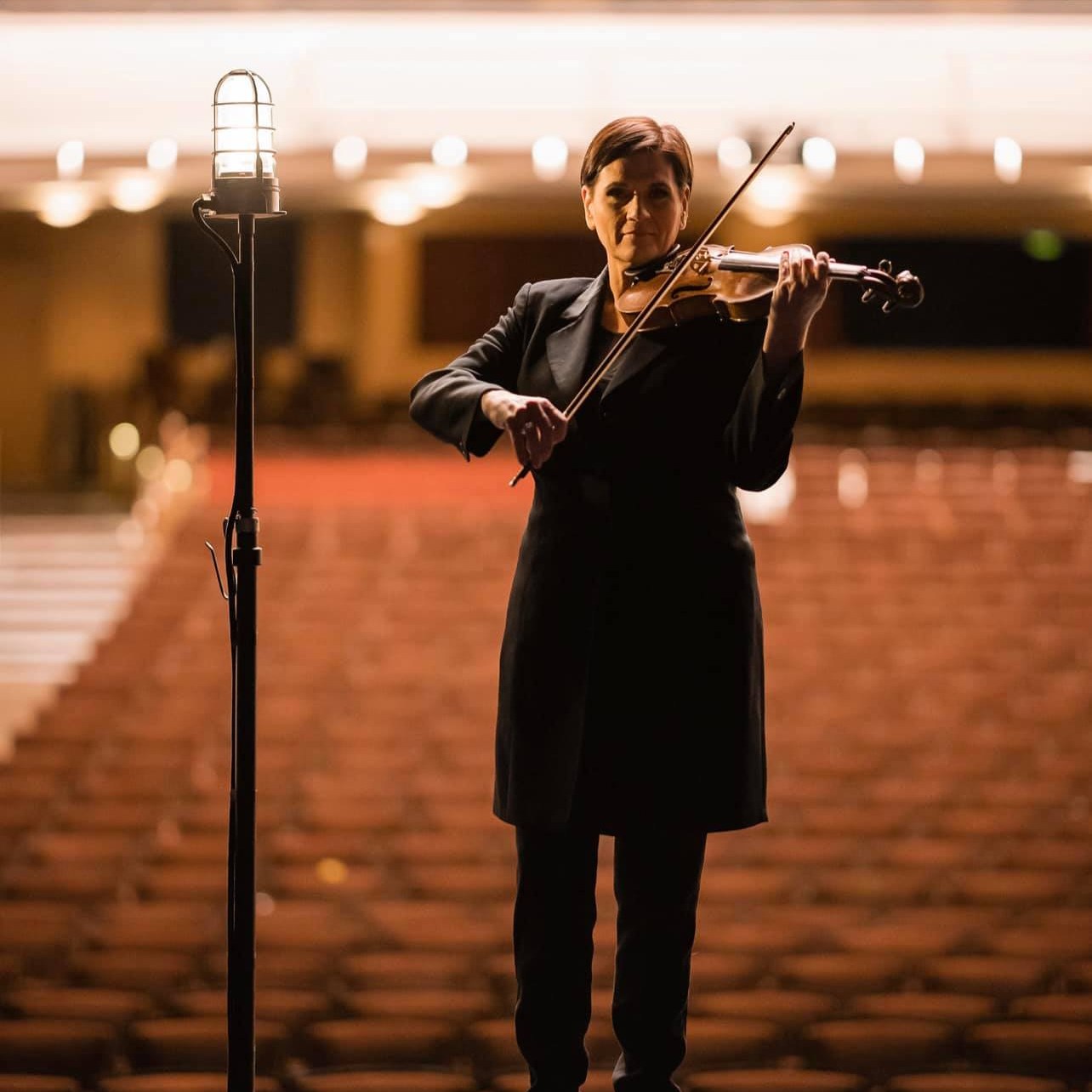
Since 1995, DeAnn Letourneau has been a driving force in the Las Vegas arts scene, skillfully balancing her roles as Concertmaster for the Las Vegas Philharmonic, Opera Las Vegas, and the Nevada Ballet Theatre, alongside leading residencies for major artists. Beyond performing, she dedicates herself to teaching, serves as a leader in the musicians’ union, and is spearheading a significant campaign for a new arts center. However, her most treasured roles remain being a mother to three and a wife.
For DeAnn, a fulfilling career has shifted its focus from simply achieving prestigious titles to recognizing the profound impact of music, describing it as “the way sound changes the energy in a space… that’s the fulfillment. That’s the magic.”
Common assumptions about her busy life include the idea that she doesn’t sleep and that it’s all leisurely enjoyment. She clarifies that she doesn’t rely on caffeine and views her existence as “not compartmentalized, but orchestrated.”
DeAnn constantly feels the pressure to justify her choices often met with suggestions to slow down without understanding her motivations. Inspired by her mother’s encouragement to pursue her dreams she navigates this by trusting her path and tuning out negativity guided by the principle: “We are not here to shrink to fit someone else’s comfort zone.”
She finds momentum and clarity through her supportive family viewing “balance” as a dynamic process rather than a static state. “Balance feels like standing still and standing still was never the goal.” In fact, she jokes that maybe she should get into yoga, but then concludes: “maybe chaos IS my yoga!”
Having been underestimated throughout her life particularly coming from a nontraditional musical background DeAnn has used it as motivation. Embracing her authentic joyful personality she lives by the motto: “I didn’t fit the mold so I built a better one.”
If she could rewrite the script around “doing it all” DeAnn would stress the bravery required to pursue a multifaceted life driven by purpose and perseverance through inevitable challenges.
Her advice to her younger self and other women is to “Own it sooner!” She encourages boldness, self-trust, and mutual support, reminding them that even small steps can create significant change.
Katelyn Mattson Lives Authentically
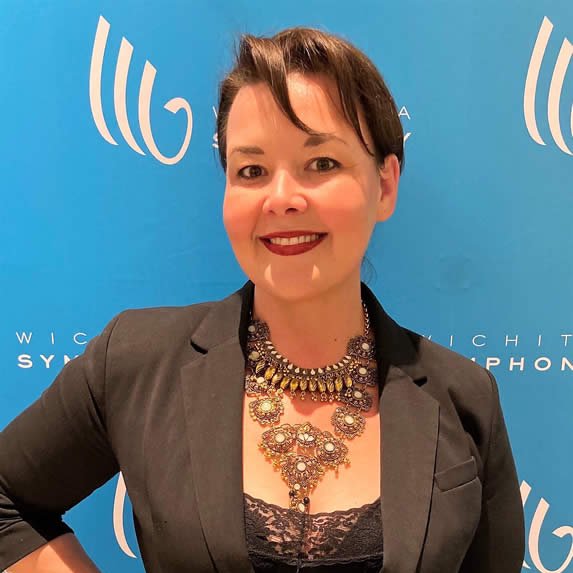
Katelyn Mattson is the vibrant voice and Classical Music Coordinator at Radio Kansas, a network serving much of the state. Her professional life extends beyond the airwaves, encompassing freelance work as a classical vocalist and artist. Adding another dimension to her creative pursuits, she recently published her first poetry book.
Katelyn’s commitment to her community is evident in her extensive volunteer work, which includes leading a men’s choir at Hutchinson Correctional Facility. She also serves as the President of her County Arts Council and recently completed her first term as Chair of her County Democratic Committee. Balancing these many roles, Katelyn is also a single mother of three children and the caretaker of six cats.
In the male-dominated field of classical public radio, Katelyn encountered initial assumptions about her knowledge and expertise. She recalls being underestimated as a younger woman who approached her work with lightheartedness. However, she found a satisfying “smug redemption” in witnessing the surprised realization on people’s faces when she demonstrated her deep musical understanding and casually mentioned her three college degrees in the field.
When people learn about her diverse activities, Katelyn imagines some might perceive her as “insane” or question her priorities as a mother, perhaps wondering if her ambition came at a personal cost. However, she asserts that she is living more authentically than ever, driven by a desire for creativity, community connection, and a strong sense of purpose. For Katelyn, embracing all her roles is about “finding the balance between raising strong women and being one.”
Susanna Perry Gilmore’s Balancing Act
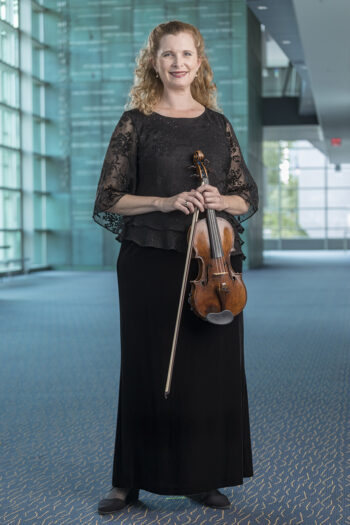
Since 2011, Susanna Perry Gilmore has held the position of Concertmaster for the Omaha Symphony. Beyond this full-time commitment, she frequently performs as Associate Concertmaster with the renowned baroque orchestra, Apollo’s Fire, based in Cleveland. Demonstrating her diverse musical talents, Susanna also plays Celtic fiddle and co-created Celtic Journey, a popular Celtic pops show that performs with symphony orchestras nationwide.
Susanna often encountered the frustrating question, “And what do you do for a living?” This inquiry, she notes, fails to recognize the significant and often invisible preparation time required for a performing career, extending far beyond scheduled rehearsals and concerts.
Earlier in her career, while serving as Concertmaster of the Memphis Symphony and navigating two pregnancies, Susanna frequently received praise for “doing it all” with her job, husband, and children. Her pragmatic response, “it’s not impressive, it costs…I’ve been paying for childcare from day one so I can practice!” highlights the often-unacknowledged financial and logistical realities many working mothers face in demanding professions.
Over her career, Susanna has prioritized professional and personal life balance. Reflecting on the lack of female role models in performing arts leadership who also chose to have children, she offers a valuable insight: “I think the truth is, we can have and do it all, but not everything all at once.” She acknowledges that choices, such as touring with Apollo’s Fire and performing with Celtic Journey, became feasible later in her career when her children were older and family resources allowed.










